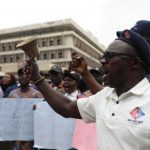General
High Level British Delegation Visits Sudan
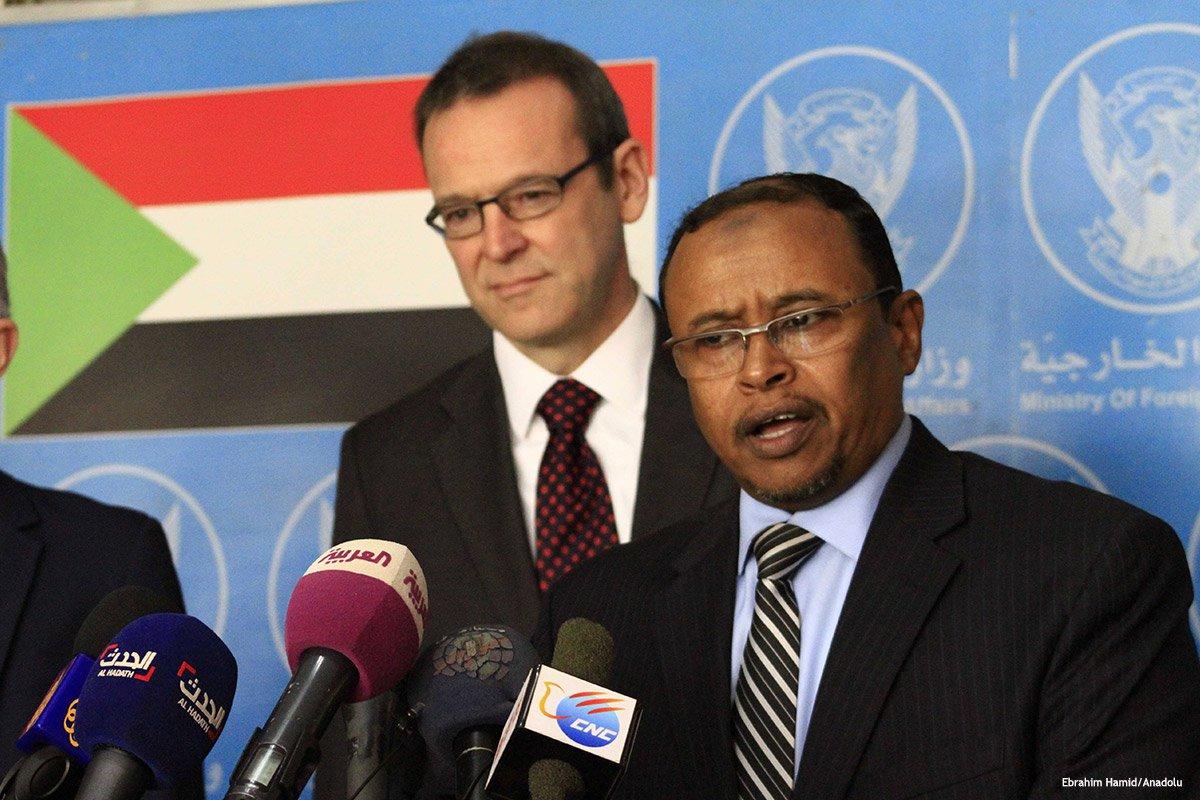
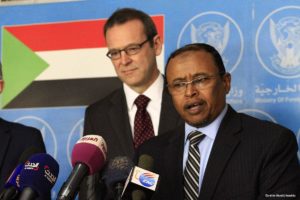
By Dipo Olowookere
A senior delegation from the UK’s Foreign and Commonwealth Office (FCO) and Department for International Development (DFID) visited Sudan on 9-10 January 2017 for wide-ranging talks. Led by FCO Permanent Under-Secretary Sir Simon McDonald and DFID Permanent Secretary Sir Mark Lowcock, the delegation travelled to Khartoum and Nyala, South Darfur.
Reflecting on the visit, Sir Simon said, “I’m delighted to have taken up the invitation extended by my Sudanese counterpart, Ambassador Abd Elghani Elnaim, when we met in London last October.
Relations between the peoples of Sudan and the UK are deep and historic, and our meetings over the last two days reflected that breadth.
“In addition to Sudan-UK bilateral interests, we also discussed human rights, conflict, migration, humanitarian and development assistance, economic matters, and the situation in the region.
“I am confident that our bilateral relations have a positive future. In my meetings with Government and the opposition, I urged them to not delay fully implementing the AU Roadmap and taking forward the national dialogue recommendations in an inclusive way.
“This is a key moment for Sudan to address its political and economic challenges and the opportunity should not be lost. The Government, the opposition parties and the armed movements must place the interests of the Sudanese people foremost and act accordingly.
“In Khartoum, the visitors met Foreign Minister Prof Ibrahim Ghandour and senior government interlocutors, as well as opposition figures and civil society representatives.
“In Nyala, the delegation was received by the Wali of South Darfur Adam Al-Faki and oversaw the launch of a cash-based transfer pilot in Otash camp.
Commenting on the launch, Sir Mark said: I’m proud to have launched in Darfur this innovative cash-based transfer project. Through this pilot, DFID, the World Food Programme and WorldVision, working closely with Blue Nile Mashreg Bank, will provide 75,000 people in Otash Camp with cash assistance, replacing the more traditional food assistance and vouchers, and providing greater choice for people participating in the programme. DFID spends £50 million per year in Sudan, and we are keen to work with partners on delivering more sustainable solutions for displaced persons where the opportunity allows.
This visit by the senior-most officials in the FCO and DFID was the third since the initiation of the Sudan-UK Strategic Dialogue in March 2016, and follows visits by the FCO Africa Director and the UK Special Representative for Sudan.
The British Ambassador Michael Aron emphasised the importance of maintaining high-level engagement: The UK is strengthening its relationship with Sudan through increased government to government dialogue. This is essential in order to respond to shared challenges including the deteriorating situation in South Sudan, increased migration flows and countering violent extremism. We are committed to building a dialogue that is frank and open, including on how the UK can support efforts to end conflict and promote peaceful political transition, and the central importance of respect for human rights and political freedoms.
General
Electricity Workers Issue 21-Day Strike Notice Over Pay, Working Conditions
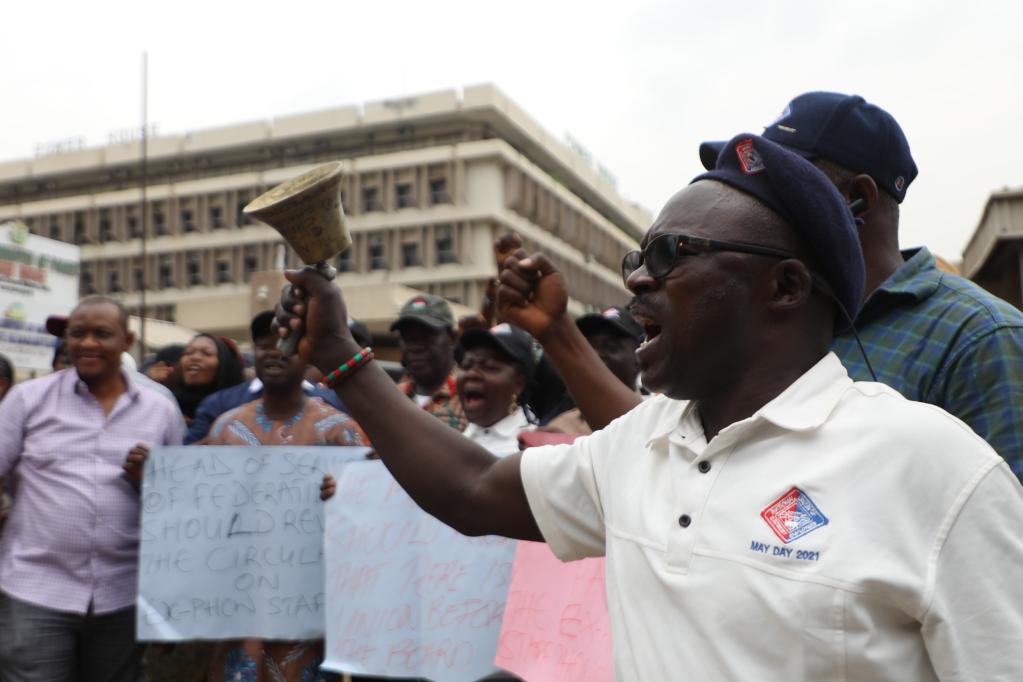
By Adedapo Adesanya
Electricity workers, under the aegis of the National Union of Electricity Employees (NUEE), have issued a 21-day nationwide strike notice to the federal government, citing unresolved labour grievances and what they described as worsening conditions across the power sector.
They formally notified the Minister of Power, Mr Adebayo Adelabu, of their intention to embark on industrial action if urgent steps are not taken to address the persistent violations of workers’ rights within the Nigerian Electricity Supply Industry (NESI).
In the letter, the union accused power sector operators of refusing to honour collective agreements, implement the 2025 National Minimum Wage Act and effect its consequential adjustments. It also alleged widespread anti-labour practices across power generation and distribution companies.
“We have written several letters to the ministry on these issues, but there has been little or no response,” the union stated, expressing frustration over what it described as official indifference.
Among the grievances listed are non-remittance of pension deductions and Pay-As-You-Earn (PAYE) taxes, denial of workers’ right to unionise, intimidation of staff, and failure to improve welfare despite repeated tariff increases.
The union said in some distribution companies, pension contributions deducted from workers’ salaries have allegedly remained unpaid for years, leaving employees uncertain about their retirement security.
The electricity workers also criticised what they termed the “militarisation” of workplaces, alleging harassment and threats in certain power firms.
According to the union, labour is increasingly being treated as an adversary rather than a critical stakeholder in a sector already struggling with public confidence.
The notice further questioned the performance of investors who acquired power assets during the 2013 privatisation exercise.
The union argued that promises of improved infrastructure, capital injection, metering expansion and better service delivery have not translated into meaningful gains for workers or consumers.
While electricity tariffs have risen multiple times in recent years, the union said workers have seen no corresponding improvement in salaries, promotions, bonuses or working conditions.
Business Post reports that the ultimatum likely places the federal government under pressure to act as a nationwide strike would significantly disrupt power generation and distribution, affecting homes, hospitals, small businesses and critical infrastructure already grappling with unreliable supply.
General
Oyetola Warns Budget Shortfall Threatens Operations of NPA, NIMASA, Others
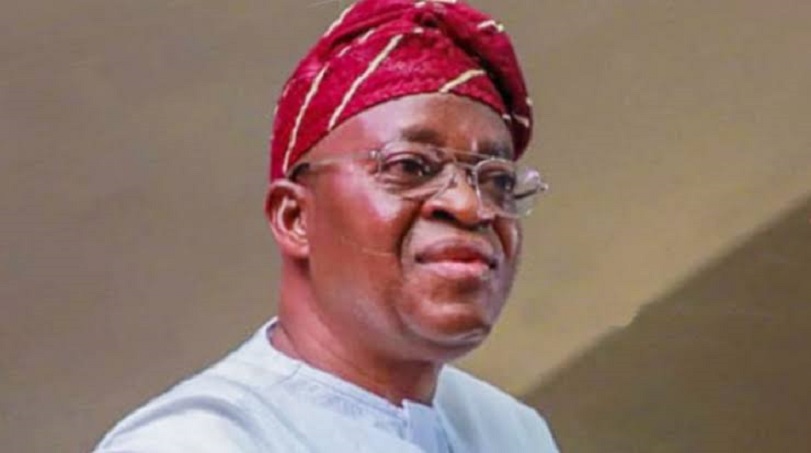
By Adedapo Adesanya
The Minister of Marine and Blue Economy, Mr Adegboyega Oyetola, has warned that operations of agencies under his ministry were being severely constrained by excessive deductions at source by the Office of the Accountant-General of the Federation.
He disclosed on Tuesday while presenting a N10.5 billion budget proposal for the Federal Ministry of Marine and Blue Economy for the 2026 fiscal year.
He lamented that the allocation was grossly insufficient to effectively execute the ministry’s wide-ranging mandate, critical to Nigeria’s trade, transport efficiency and food security.
Mr Oyetola while defending the ministry’s budget before a joint sitting of the Senate Committee on Marine Transport and the House of Representatives committees on Ports and Harbours; Maritime Safety, Education and Administration; Shipping Services; Inland Waterways; and Ocean and Fisheries, said the proposed budget, which comprises N8.24 billion for capital expenditure, N453.86 million for overheads and N1.81 billion for personnel costs, would only sustain minimal operational continuity rather than deliver meaningful reforms or sectoral growth.
The minister explained that the ministry oversees interconnected subsectors, including ports, shipping, inland waterways, fisheries and aquaculture, which collectively handle over 90 per cent of Nigeria’s international trade by volume, national food and nutrition security, and economic competitiveness.
He noted that while agencies such as the Nigerian Ports Authority (NPA), Nigerian Maritime Administration and Safety Agency (NIMASA) and Nigerian Shippers’ Council (NSC) were self-funding and made significant remittances to the Consolidated Revenue Fund, their operations were being severely constrained by excessive deductions at source by the Office of the Accountant-General of the Federation.
According to him, these deductions had weakened liquidity and reduced the operational flexibility of key agencies responsible for maritime safety, port efficiency and regulatory oversight, with far-reaching consequences including port congestion, higher logistics costs, delayed cargo movement, revenue losses and inflationary pressures.
He stressed that what appeared to be an accounting issue had become a national economic concern.
Mr Oyetola also said that the 2026 budget of the Council for the Regulation of Freight Forwarding in Nigeria (CRFFN) was wrongly placed by the Budget Office under the Federal Ministry of Transportation, even though it is an agency under the Federal Ministry of Marine and Blue Economy, saying the misalignment undermined clarity in oversight and policy coherence within the maritime logistics value chain.
On inland waterways, the Minister appealed for increased funding to curb accidents and loss of lives. He said water transport is globally recognised as significantly cheaper than road transport.
He noted that Nigeria’s heavy reliance on road haulage for over 80 per cent of freight movement had worsened road deterioration and increased the cost of goods, arguing that safer and more efficient inland waterways would ease pressure on roads and lower logistics costs.
On fisheries and aquaculture, Oyetola said Nigeria’s annual fish demand of over 3.6 million metric tonnes far exceeded domestic production of about 1.4 million metric tonnes, sustaining imports valued at more than one billion dollars annually.
He added that post-harvest losses of up to 30 per cent further reduced supply, despite fish being one of the most affordable sourNiger.
“As long as we hinder official trade, individuals will resort to informal channels. Currently, we estimate that up to 50 per cent of our domestic areas have resorted to illegal trade, while only about 30 per cent is conducted legally, which is detrimental to our security.”
He pointed out that “this situation is beneficial for the economies of both countries. It will positively impact our maritime sector, as we expect an increase in transit cargo passing through our ports to Niger, resulting in economic activities for our investors in the maritime industry.
“Additionally, this development will benefit Nigerians in border communities, many of whom are engaged in farming and other economic activities, providing them with opportunities to export goods to Niger.”
General
Gaya Rallies APC Support for Governor Abba Yusuf
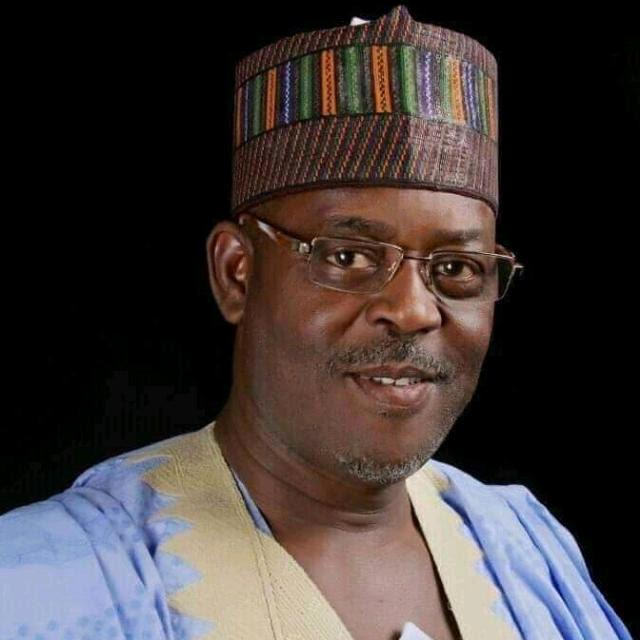
By Abba Dukawa
The independent non-executive director of the Nigeria Sovereign Investment Authority (NSIA), Mr Abdullahi Mahmud Gaya, has called on members of the All Progressives Congress (APC) and key stakeholders in Ajingi, Gaya, and Albasu Local Government Areas of Kano State to close ranks and give their full support to the state governor, Mr Abba Kabir Yusuf.
Mr Gaya described the governor’s defection to the ruling party as a bold and strategic move that reflects his deep commitment to the development and progress of Kano State, noting that APC members and stakeholders in the areas warmly welcomed the governor into the party, alongside elected and appointed officials, party leaders, and other critical stakeholders.
He made this statement during a meeting with APC leaders and stakeholders from the three local government areas, held at his office in the state capital.
According to him, the governor’s courageous decision will strengthen Kano State’s influence at the national level and open new opportunities for economic growth, improved welfare, and greater prosperity for the people.
He also urged party members to take ownership of the democratic process by ensuring they collect their APC membership cards and Permanent Voter Cards (PVCs).
In a show of solidarity and goodwill, Mr Gaya donated N6 million to party members and stakeholders during the meeting as Ramadan support.
Speaking at the gathering, a former Secretary to the State Government and Wazirin Gaya, Usman Alhaji, called on party members to intensify efforts toward strengthening the APC in the area. He said the party’s growing numerical strength in Ajingi, Gaya, and Albasu Local Government Areas already positions it as the party to beat.
Also addressing the meeting, elder statesman and senior stakeholder, Mr Uba Muhammad Danbayye, noted that the party members now recognizes the difference between a mere candidate and a true politician, saying based on Mr Gaya’s leadership style and strong relationship with the people, stakeholders have unanimously resolved to support him and will not field another candidate for the House of Representatives in the upcoming election.
-

 Feature/OPED6 years ago
Feature/OPED6 years agoDavos was Different this year
-
Travel/Tourism10 years ago
Lagos Seals Western Lodge Hotel In Ikorodu
-

 Showbiz3 years ago
Showbiz3 years agoEstranged Lover Releases Videos of Empress Njamah Bathing
-

 Banking8 years ago
Banking8 years agoSort Codes of GTBank Branches in Nigeria
-

 Economy3 years ago
Economy3 years agoSubsidy Removal: CNG at N130 Per Litre Cheaper Than Petrol—IPMAN
-

 Banking3 years ago
Banking3 years agoSort Codes of UBA Branches in Nigeria
-

 Banking3 years ago
Banking3 years agoFirst Bank Announces Planned Downtime
-

 Sports3 years ago
Sports3 years agoHighest Paid Nigerian Footballer – How Much Do Nigerian Footballers Earn










